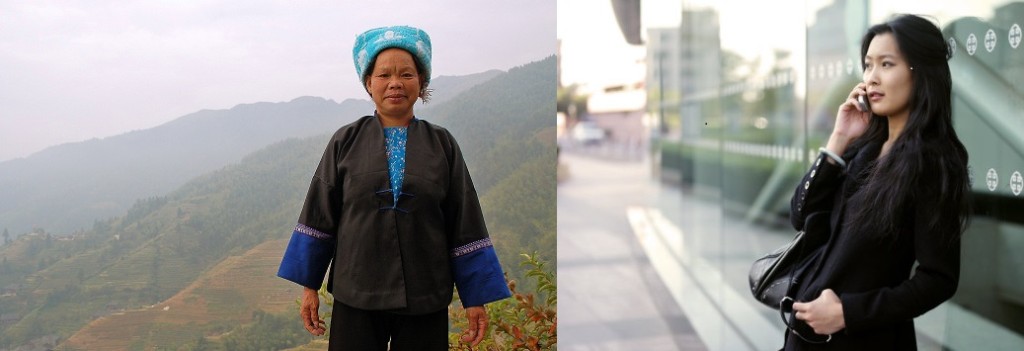In response to someone who told me I hadn’t been to the real China because I didn’t visit a hutong:
People like to say that Hong Kong, Shanghai, and even Beijing these days don’t represent the real China, with their modern skyscrapers, ubiquitous Starbuckses, and global influence. The real China is rice paddies and opium dens, Little Red Books and old ladies with bound feet, straw hats and bicycles and dragon lanterns, right?
When people who fancy themselves “travelers, not tourists,” visit foreign countries for the first time, they often verbalize their desire to see the real place. The real Paris. The real Brazil. The real Australian Outback. (Though, I concede to not hearing very many people expressing a yen for the real Orlando.) In my opinion, this quest for authenticity is as romantically futile as it is superficial – places, like people, are multidimensional entities that embody contradictions and eschew easy categorizations.
In the present, more than at any other time in history, the emergence of a global urban culture has transformed, if not usurped to some degree, the local “authentic” culture of cities. And while that global culture is indeed dominated, somewhat shamefully, by American hegemony, it is still the local incarnation of global culture that visitors to the world’s largest cities encounter – homegrown fast-food chains next door to McDonald’s, hip hop artists rhyming in Yoruba or Finnish or Bahasa Indonesia, jeans and sneakers and hoodies everywhere – evidence that anything can become tradition, given time.
True, once-unique locales have begun homogenizing, morphing into glass-and-steel clones of New York or – gasp – Dubai, with air conditioned shopping malls housing branches of the same mid-range-to-luxury goods purveyor found in commercial centers the world over.
But this is the world we live in now. Yuppies in Beijing use smart phones to order Thai takeout to watch in front of their flat-screen TVs. Students in São Paulo organize anti-corruption protests via Facebook, likening themselves to anti-corruption protesters half a world away in Turkey. It’s the technology that’s connecting us as well as conditioning us into a state of global citizenship (with its concomitant dark side, global consumerism).
Nonetheless, are these places any less real because the people who live there utilize products and services that may not be homegrown, or that many more people in a given country live in abject poverty? Is New York any less American, Paris any less French, or Bangkok any less Thai because of globalization? And does a visitor to the U.S. need to spend a night in the hood or a trailer park to experience the real America? I think far too many people conflate realness in travel with slumming, or at the very least, with what the “average” [insert nationality here] person does or doesn’t do. Every place on the planet is comprised of conflicting realities, one no less real than the other.
What I experience when I travel is as real as it gets, be it an hours-long conversation at a Krispy Kreme in Seoul or comparing dance moves in front of a chaiwala in Mumbai. It’s through genuine human interaction and an openness to learning that I get to know the real place, the real people. And that means first letting go of my own preconceived notions of realness and authenticity.
Please don’t forget to follow me on Twitter @FlyBrother, and “like” me on Facebook! You can subscribe, too! ![]()
Image sources: Lauren Nelson & Eightfish


Great post! I think the first time I started to question the concept of the “real ____” was during the 2000 and 2004 elections. There was so much talk about the “real America” which implied that farm towns and rural communities were the true USA. I wondered how San Francisco or NYC and other heavily populated areas could be considered any less real. It made me look at my travels differently and at how I romanticized about some idea of realness that wasn’t based in the reality of a constantly evolving world. While I do think it’s nice to come across traditional communities abroad that haven’t changed much for centuries, I am endlessly fascinated by cities and how even with globalization, there are always fascinating new subcultures that arise that are unique to that place.
Wow. I can’t believe you’re still blogging.
lifeandtimesofsoforeal @ blogspot (back in the day)
Been thinking of starting back, this is inspiration
I also find it strange when people say they’re looking for the “real” destination. Just the fact that you’re actually there means you are seeing a very real part of the place. Maybe not the place they wanted to see, but real nonetheless. A better distinction would be to say a more “traditional” part of a place.